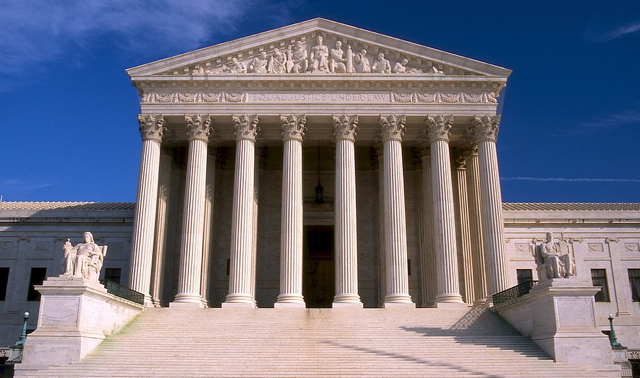Many lawmakers in Washington — from Senators Elizabeth Warren to Ted Cruz — are concerned about the amount of power that big tech companies such as Amazon, Facebook and Google have accrued. Some have even floated the idea of an antitrust law to curb their influence. But the U.S. Supreme Court just heard a case — Ohio v. American Express — that may actually give the technology giants even more power, say the experts. The case looks at how to analyze “harmful conduct” by companies that serve “multiple groups of users.”
The New York Times reports that, “though the case concerns the credit card industry, it could have sweeping ramifications for the way in which antitrust law gets applied generally, especially with regards to the tech giants.”
The Justice Department brought the case against American Express, Mastercard and Visa “for imposing anticompetitive restrictions on merchants.” The entire credit card industry, which impacts millions of merchants and cardholders, is controlled by four companies, and “merchants who need payment networks lack any real bargaining power and have been stuck paying high rates to the oligopoly.”
The Second Circuit ruled that, “the government would have to show that any price increases for merchants also harmed cardholders, or at least didn’t benefit them,” which made it “much more difficult to win important antitrust cases and to stop anticompetitive behavior.”
The Supreme Court’s ruling on that case — if affirmed — “would create de facto antitrust immunity for the most powerful companies in the economy.” According to NYT, “firms like Alphabet, Amazon, Apple, Facebook, and Uber are set to be prime beneficiaries of the Second Circuit’s warped analysis.” For that reason, “an industry trade group representing the tech platforms filed an amicus brief in support of American Express.”
NYT opines that, “the fact that the tech platforms could effectively be shielded from antitrust is troubling because, in several respects, these firms enjoy dominant market positions that makes antitrust scrutiny of their conduct especially important.” If the Supreme Court affirms the Second Circuit’s ruling, it continues, “this power is ripe for abuse,” as plaintiffs would have to show that the practices also harmed end-users.
Whereas the credit card companies introduced the idea of such a “two-sided market” as “novel,” it is in fact an idea that has been around for a long time, inherent in “grain futures exchanges (connecting farmers and buyers of farm products), banking (linking depositors and borrowers) and newspapers (serving advertisers and readers).”


No Comments Yet
You can be the first to comment!
Sorry, comments for this entry are closed at this time.